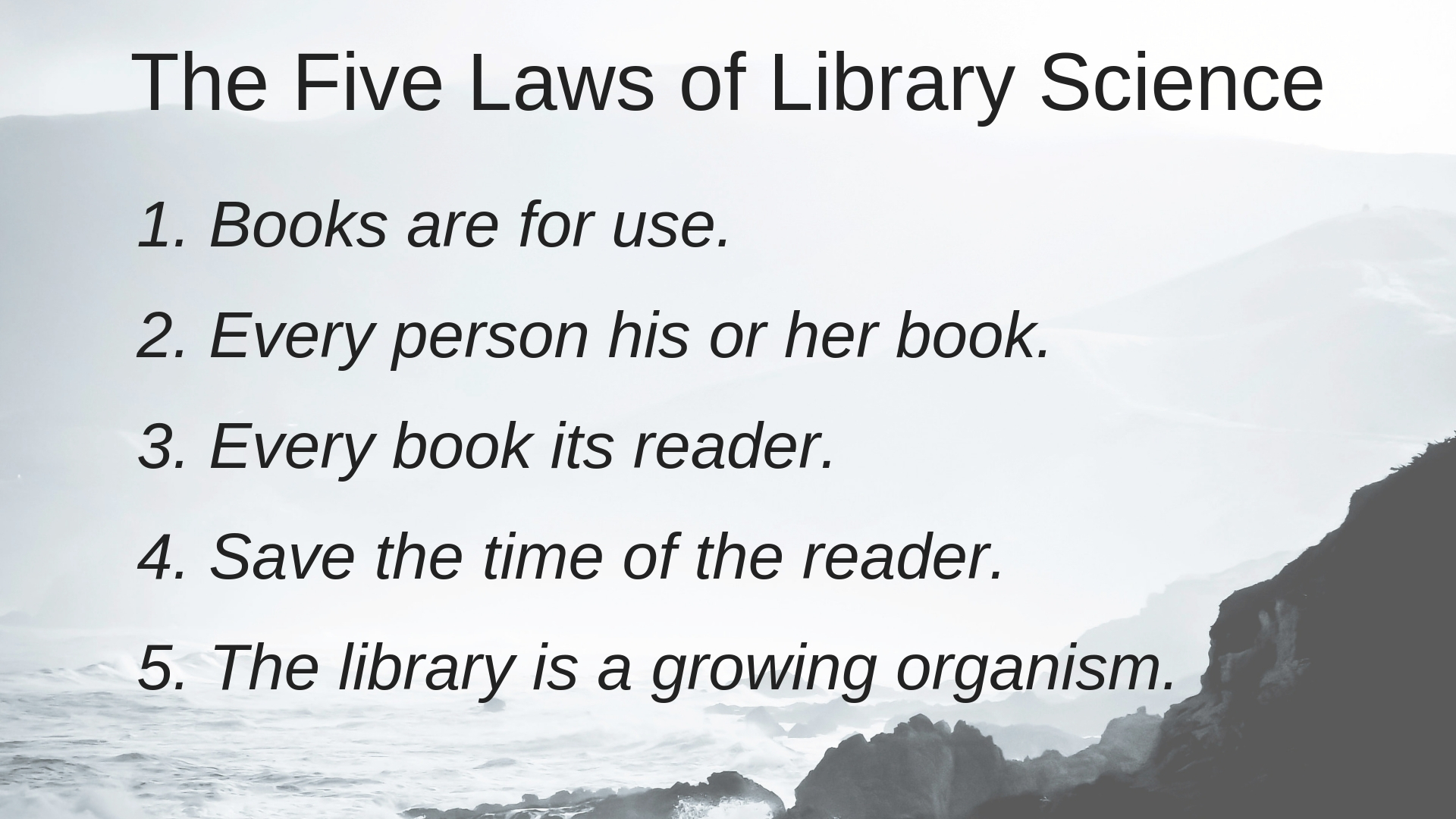Library
Read On! Organizing a Personal Library
 Photo by Iñaki del Olmo on Unsplash
Photo by Iñaki del Olmo on Unsplash
I get asked a lot about the best ways to organize a personal library. To be honest, there is no right or wrong way as long as the way you’ve chosen to organize your library works for you. Even if what works for you is to organize by size and color.
The whole point of organizing any library – personal or public – is so you can find the materials you want easily. In my personal movie library, I classify everything into two main categories with two subcategories. The main categories are: “Kids” and “Not Kids.” Within my “Not Kids” category, I have the subcategories “TV Series” and “Movie Series.” Then, according to their category or subcategory, I dump the movies into a cloth-covered bin and put the bins in a cube storage organizer.
I classify our books and comic books a bit differently and with more complicated categories and subcategories. But like our movies, I have not put our books and comic books in alphabetical or Dewey Decimal order. They aren’t dumped in bins, but they’re not shelved with meticulous care either.
That works for us. We know where things are and we don’t have a personal library large enough that we need to be more specific in our categorization or shelving.
For anyone wanting to keep track of a personal library with more than a spreadsheet, I always recommend Library Thing. It’s a free (up to 200 items) online tool to help catalog and inventory your personal library. Some organizations like churches and small law libraries use Library Thing for their public collections. It lacks some of the features of a more robust library software package (like the ability to print spine labels), but it’s pretty neat and very functional for a mostly free service.
If you need more books for your personal library, check out our perpetual book sale in the Graham Ave. vestibule.
Read On! The Five Laws
In 1931, Dr. S. R. Ranganathan proposed the Five Laws of Library Science. There have been several adaptations along the way, but I tend to like the original:
- Books are for use
- Every reader his/her book
- Every book its reader
- Save the time of the reader
- The library is a growing organism
I think about the laws of library science more often than I thought I would when I first learned about them in library school. They’re a bit of a touchstone for me when I’m making decisions about the library’s collection, services, staffing, and building.
The five laws work very well as a whole to remind libraries that our collections of books, movies, online resources, etc. are not museum pieces to be looked at. Our collections are meant to be used by the people we serve (Law 1).
As we select the items that fill our collections we must consider the needs and interests of our communities (Law 2) as well as act as a conduit to connect people to the correct resources for their needs and interests (Law 3).
While we do all of that, we must make sure we’re not putting up too many barriers between our communities and our collections and services, we must make sure our collections and services are findable (Law 4), and we do not get bogged down by the “we’ve always done it this way” mentality (Law 5).
This week, you may notice Law five is in full effect at your library. Our building is getting some much-needed attention in our public restrooms and we’ll soon be looking for bids to do some brick restoration. You might also notice we’re looking for two part-time (18 hrs/wk) employees – one for our computer lab and one for our youth services department. If you’ve got excellent customer service skills and would like to join in on staff shenanigans, get your application to City Hall by 5 pm on Friday, Dec. 7th.
Read On! Nice Quiet Libraries
There’s a struggle in modern libraries. Are libraries quiet havens for reading, study, and contemplation or are libraries lively centers for communication, play, and creation? The short answer is, “yes.” Finding a balance between those needs in our building is difficult, but not impossible.
Our physical building limits some of what we can do to control noise levels – brick does not absorb sound well – but if you travel from West to East the library tends to get progressively quieter. Sometimes our Library Board meets in the Genealogy Department and we’re louder than the average bear, but generally, the East wing is the quietest place in the building.
If you’re looking for examples of when the library is at its loudest, poke your head in the Youth Services Department after school. You might find toddlers and pre-schoolers cooking in our play kitchen while kids in kindergarten through about sixth grade play Roblox on computers. Meanwhile our teens are likely practicing magic tricks (really) or socializing in the Teen Area. It’s a bustling place.
In the middle of the library toward the main checkout desk, I’ll be honest: the loudest thing is probably the staff. Our break room and staff kitchen are behind the desk, so we tend to socialize there. Feel free to tell us if we’re being too loud.
By the time you get through the computer lab, past the loud staff on break, and through the adult books, you’re in our quietest area: our Local History and Genealogy Department. Our East wing is not only a wonderfully atmospheric area of the building, but it’s also a great place to do research or study without much more than building noise.
We try to make the library a home to as many people as we can. If we can do something to make your time in the building better, please let us know.
Read On! Chicago Revisited
I got to go to Chicago a few weeks ago to attend the Participatory Design Workshop for the Measuring Library Broadband Networks study (which is to say, we had a meeting to help the researchers focus and design their study so the results will be the most useful to libraries across the nation). The participants represented 10 libraries of varying size from across the nation – even staff from a library in Alaska serving 150 people – as well as experts in the fields of both library science and information technology. There were about 30 people in all.
The entire experience was a rich and worthwhile one. My mother and I got to experience the amazing culture of Chicago’s museums, stand in awe of the size of Lake Michigan, and I got to share Pryor with a group of pretty impressive library-folk.
Some of the participants from larger library systems were surprised at how many hats your library staff wears. I am the Director by title, but I am also the library’s primary IT person. They were even more entertained when I explained that if there’s an IT problem I struggle with, I call one of our local police officers for backup.
To give you an idea of scale, your Pryor Library has a total of 34 computers in our single building. The Chicago Public Library has 3,500 computers in their 80+ branches. They have a veritable army for IT problems. We were all impressed by the unique experiences each library has.
One of the ways this study will benefit libraries across the U.S. is to ensure our internet providers are providing what your tax dollars pay for and ensure we’re using our budgets effectively. More immediately, learning about the experiences of other libraries and being able to call these 29 people colleagues and friends will help your Pryor Library grow in new and exciting ways. I can’t wait to start.


